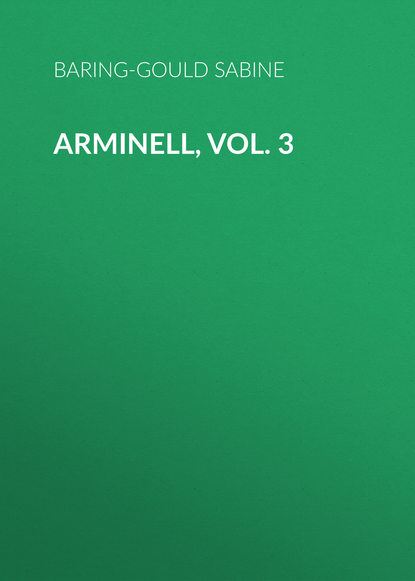По всем вопросам обращайтесь на: info@litportal.ru
(©) 2003-2025.
✖
Arminell, Vol. 3
Настройки чтения
Размер шрифта
Высота строк
Поля
“But, Mr. Welsh, suppose that suspicion has been roused at Orleigh – Mrs. Cribbage has to be considered. That woman will not leave a stone unturned till she has routed out everything. I used to say that was why the finger ends were always out of her gloves. I would have to equivocate, and perhaps to lie, when asked point-blank questions which if answered would betray the truth. I would be putting my dear step-mother to the same inconvenience and humiliation.”
“Trust her wit and knowledge of the world to evade Mrs. Cribbage.”
“But I cannot. I have not the wit.”
Mr. Welsh was vexed, he stamped impatiently.
“I can’t follow you in this,” he said.
“Well, Mr. Welsh, then perhaps you may in what I give you as my next reason. I feel bound morally to take the consequences of my act. When a wretched girl flings herself over London Bridge, perhaps she feels a spasm of regret for the life she is throwing away, as the water closes over her, but she drowns all the same.”
“Not at all, when there are boats put forth to the rescue, and hands extended to haul her in.”
“To rescue her for what? – To be brought before a magistrate, and to have her miserable story published in the daily penny papers. Why, Mr. Welsh, her friends regret that her body was not rolled down into the deep sea, or smothered under a bed of Thames mud; that were better than the publication of her infamy.”
“What will you have?”
“I have made the plunge; I must go down.”
“Not if I can pull you out.”
“You cannot pull me out. I made my leap out of my social order. What I have done has been to commit social suicide. There is no recovery for me save at a cost which I refuse to pay. I have heard that those who have been half drowned suffer infinite agonies on the return of vitality. I shrink from these pains. I know what it would be were I fished up and thrown on my own shore again. I would tingle and smart in every fibre of my consciousness, and cry out to be cast in again. No, Mr. Welsh, through youthful impetuosity and wrong-headedness I have jumped out of my social world, and I must abide by the consequences. As the Honourable Arminell Inglett I have ceased to exist. I die out of the peerage, die out of my order, die out of the recognition, though not the memory of my relatives. But I live on as plain Miss Inglett, one of the countless members of the great Middle Class.”
James Welsh looked at the girl with puzzlement in his face. Spots of flame had come into her pale cheeks, and to the temples, as she spoke, and she moved her slender fingers on her lap in her eagerness to make herself explicit and her difficulties intelligible.
“I don’t understand you, Miss Inglett. That is, I do not see what is your intention.”
“I mean that I have committed social suicide, and I do not wish to be saved either for my friends’ sake or for my own. I ask you kindly to get my death inserted in the Times and the other daily papers.”
“Your actual death?”
“A statement that on such a day died the Honourable Arminell Inglett, only daughter of the late Lord Lamerton. That will suffice; it proclaims to society that I have ceased to belong to it. Of course my dear step-mother and my aunt and the family solicitors shall know the truth. I have money that comes to me from my mother. A statement of my death in the Times will not constitute legal death, but it will suffice to establish my social death.”
“You are taking an extraordinary and unwarrantable course.”
“Extraordinary it may be, but not unwarranted. I have the justification within, in my conscience. When one has done that which is wrong, one is called to suffer for it, and the conscience is never cleansed and restored without expiating pains. If I were to return to Orleigh I would die morally, of that I am sure, because it would be a shirking of the consequences which my foolish act has brought down on me.”
“There may be something in that,” said Welsh.











